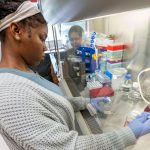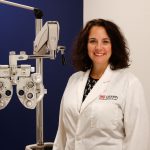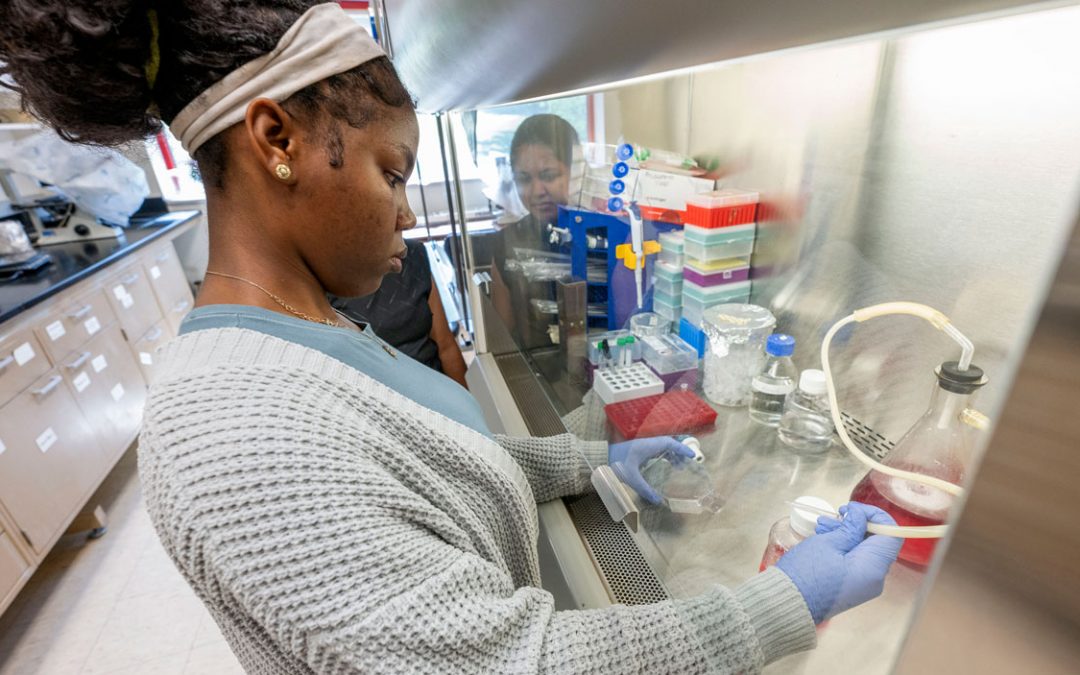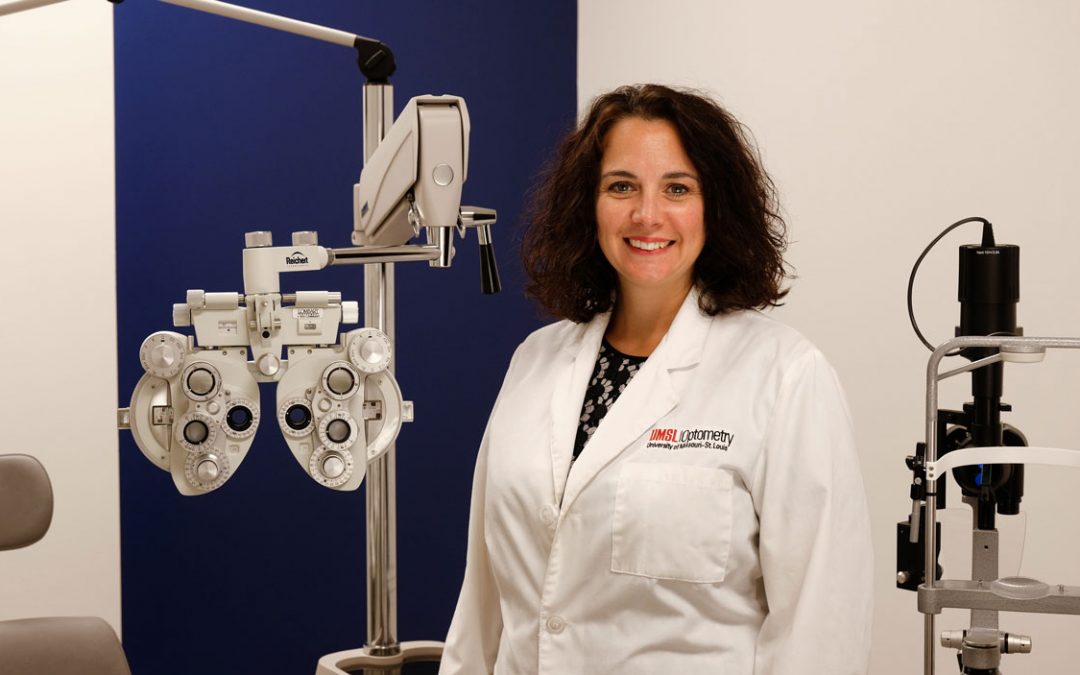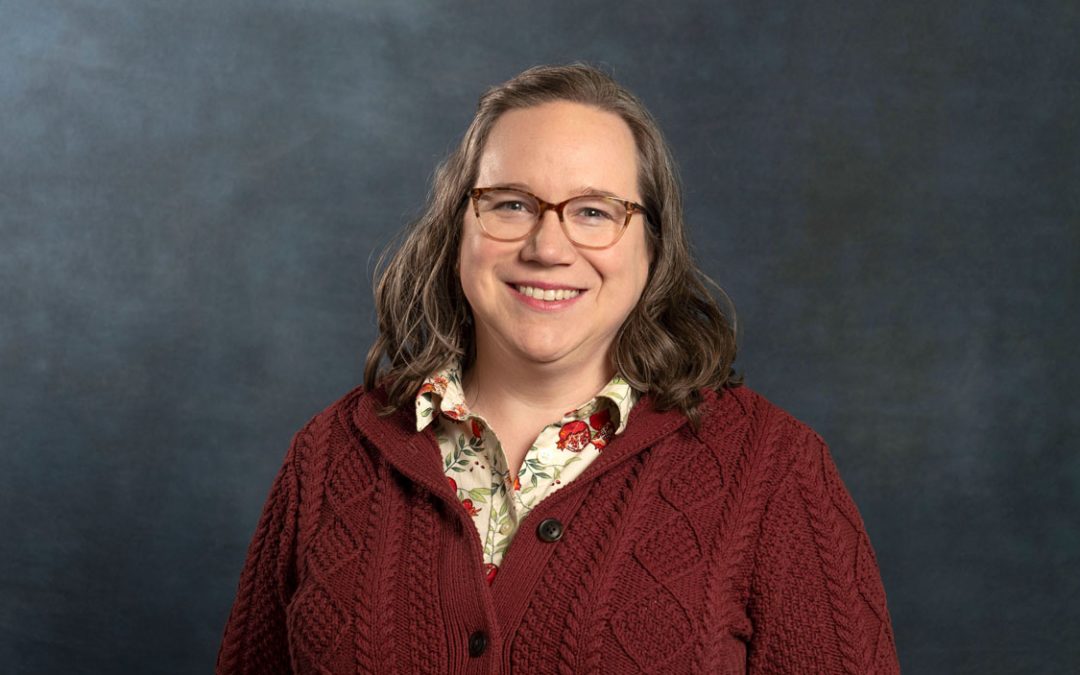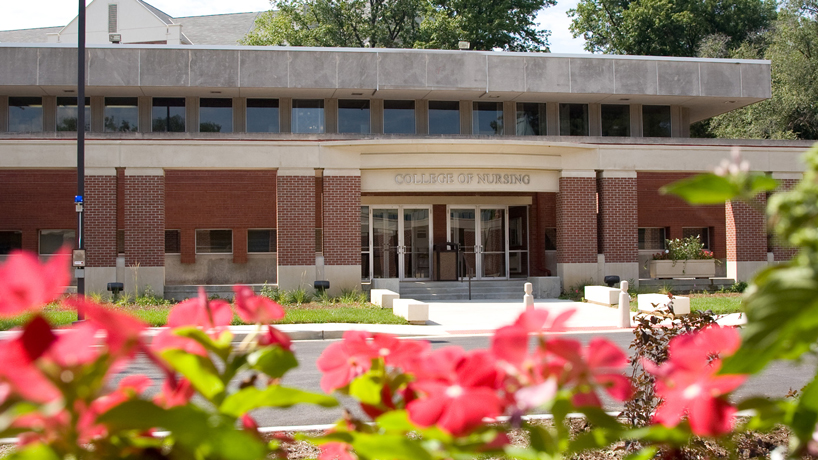
HRSA awarded a $2 million grant to the DNP program in UMSL’s College of Nursing to extend preceptor and student training into rural and underserved areas. (Photo by August Jennewein)
It’s quite a chunk of change the Health Resources and Services Administration awarded the College of Nursing at the University of Missouri–St. Louis this month. The $2,092,506 grant means two things: stronger community partnerships in critical areas and new teaching technology.
The funds from HRSA, an operating division of the U.S. Department of Health and Human Services, will go specifically to the Doctor of Nursing Practice program at UMSL. Roberta Lavin, associate dean for academic programs in the college, will serve as the principal investigator.
“I’m very excited about the opportunity this grant gives us to develop and implement a program that is specifically designed to educate students to work with underserved and rural populations,” she said.
Lavin hopes that reaching into those areas (to be determined by efforts to come) will result in more students seeking employment in such clinics. She also hopes to foster diversity within the nursing student body.
Current community partners include Compass Health, Family Care Health Centers, the City of St. Louis Health Department, St. Louis County Health Department and SSM Health Care, but the grant calls for eight additional partnerships to be formed over the three funded years as part of a learning collaborative.
“The partnerships should result in clinical placements in rural and underserved settings where the preceptors agree to participate in training and the clinics help us to evaluate the cost of training,” Lavin said. “The hope is that through well-trained preceptors and extended clinical placements in one system, we can make it cost neutral to the clinic.”
The grant money will be spent on training tools like telemedicine equipment and mobile simulation programs with case scenarios using avatars, which will provide access to nursing education remotely. The programs will be designed for student intensive experiences and will focus on cultural fluency and social determinants of health. New faculty, adjunct and research positions will also be created as well as a position for a simulation technologist.
Lavin’s team in securing the grant included nursing faculty members Kimberly Allen, Anne Fish, Sheila Grigsby, Sue Kendig, Rick Zimmerman and many other program directors and emphasis area coordinators. Susan Dean-Baar, dean of the College of Nursing, took note of the team effort.
“This proposal really did take a village and will benefit our students and the individuals they work with for years into the future.”
Media Coverage:
St. Louis Post-Dispatch



